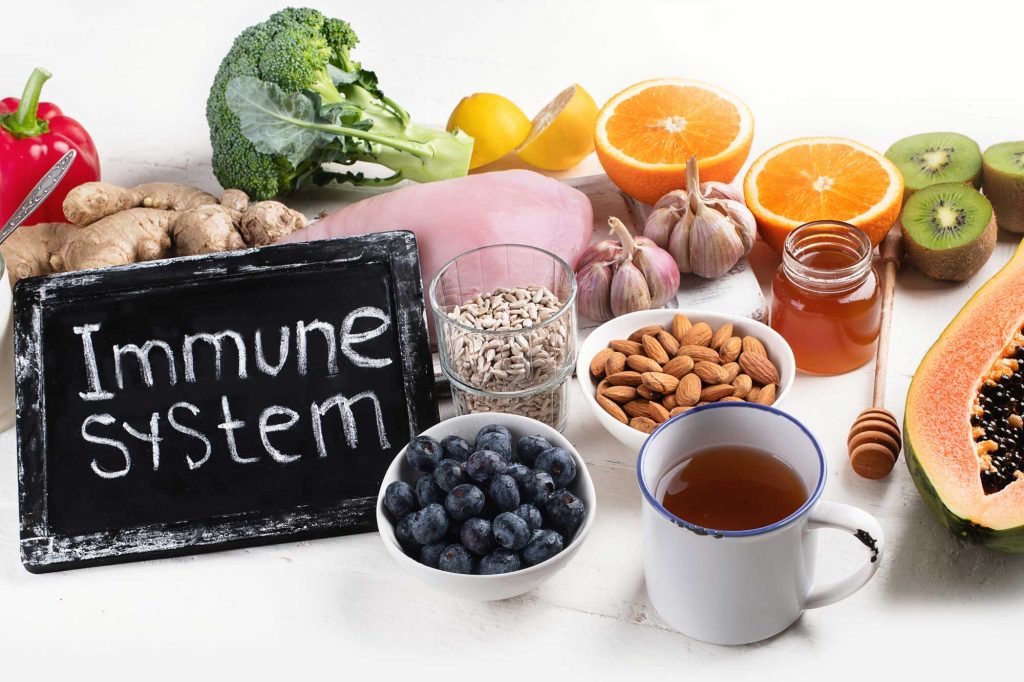In today’s fast-paced world, maintaining a robust immune system is more crucial than ever. Boosting your immune system naturally involves a combination of the right foods and lifestyle choices that can significantly enhance your body’s defenses. This article, “Boosting Your Immune System Naturally: Best Foods And Lifestyle Tips,” will guide you through the essential nutrients and habits that can help fortify your immune response, ensuring you stay healthy and vibrant.
As you delve deeper into this article, you will discover a variety of immune-boosting foods, from vibrant fruits and vegetables to powerful herbs and spices. Each section will highlight the specific benefits these foods offer, along with practical tips on how to incorporate them into your daily diet. Additionally, we will explore lifestyle changes that can further support your immune health, such as stress management techniques, the importance of sleep, and the role of regular physical activity.
Whether you’re looking to fend off seasonal illnesses or simply want to enhance your overall well-being, this comprehensive guide will provide you with the knowledge and tools you need. So, keep reading to unlock the secrets of natural immunity and empower yourself with the best foods and lifestyle tips for a healthier, more resilient you!
Nutrient-Rich Foods for Immune Support
One of the most effective ways to boost your immune system naturally is through a diet rich in essential nutrients. Foods high in vitamins C and D, zinc, and antioxidants play a crucial role in enhancing immune function. Citrus fruits, such as oranges and grapefruits, are well-known for their vitamin C content, which helps stimulate the production of white blood cells. Additionally, leafy greens like spinach and kale are packed with vitamins and minerals that support overall health.
Incorporating nuts and seeds, such as almonds and sunflower seeds, can also provide a significant boost to your immune system. These foods are rich in vitamin E, an antioxidant that helps combat oxidative stress in the body. A balanced diet that includes a variety of colorful fruits and vegetables ensures that you receive a wide range of nutrients necessary for optimal immune function.
The Role of Probiotics in Immune Health
Probiotics are beneficial bacteria that play a vital role in maintaining gut health, which is closely linked to immune function. A healthy gut microbiome can enhance the body’s ability to fight off infections and diseases. Foods rich in probiotics, such as yogurt, kefir, sauerkraut, and kimchi, can help replenish the good bacteria in your gut.
Research has shown that a balanced gut microbiome can improve the immune response and reduce the risk of respiratory infections. Including probiotic-rich foods in your diet can also aid digestion and promote overall well-being. For those who may not consume enough fermented foods, probiotic supplements can be an effective alternative to support gut health.
Hydration and Its Impact on Immunity
Staying hydrated is essential for maintaining a strong immune system. Water plays a crucial role in various bodily functions, including the transportation of nutrients and the removal of toxins. Dehydration can lead to a weakened immune response, making the body more susceptible to infections.
In addition to drinking plenty of water, incorporating hydrating foods such as cucumbers, watermelon, and oranges can help maintain optimal hydration levels. Herbal teas and broths are also excellent options for boosting fluid intake. Aim for at least eight glasses of water a day, and adjust your intake based on activity levels and climate conditions.
The Importance of Regular Exercise
Regular physical activity is another key factor in boosting your immune system naturally. Exercise helps improve circulation, allowing immune cells to move more freely throughout the body. Moderate-intensity activities, such as walking, cycling, or swimming, can enhance immune function and reduce inflammation.
Moreover, engaging in regular exercise can help manage stress levels, which is crucial for maintaining a healthy immune system. Chronic stress can lead to hormonal imbalances that negatively impact immune function. Aim for at least 150 minutes of moderate exercise each week to reap the immune-boosting benefits.
Stress Management Techniques for Immune Health
Chronic stress can have a detrimental effect on your immune system, making it essential to incorporate stress management techniques into your daily routine. Practices such as mindfulness meditation, yoga, and deep breathing exercises can help reduce stress levels and promote relaxation.
Additionally, ensuring adequate sleep is vital for immune health. Lack of sleep can impair the immune response, making the body more vulnerable to infections. Aim for 7-9 hours of quality sleep each night to support your immune system. By prioritizing stress management and sleep, you can significantly enhance your body’s ability to fend off illness.
| Category | Foods & Tips | Benefits |
|---|---|---|
| Fruits |
|
Rich in vitamin C and antioxidants, which help boost immune function. |
| Vegetables |
|
High in vitamins A, C, and E, and minerals that support immune health. |
| Nuts & Seeds |
|
Provide healthy fats, vitamin E, and zinc, which are essential for immune function. |
| Proteins |
|
Support the production of antibodies and immune cells. |
| Herbs & Spices |
|
Have anti-inflammatory and antioxidant properties that enhance immune response. |
| Lifestyle Tips |
|
Promote overall health and improve immune function. |

